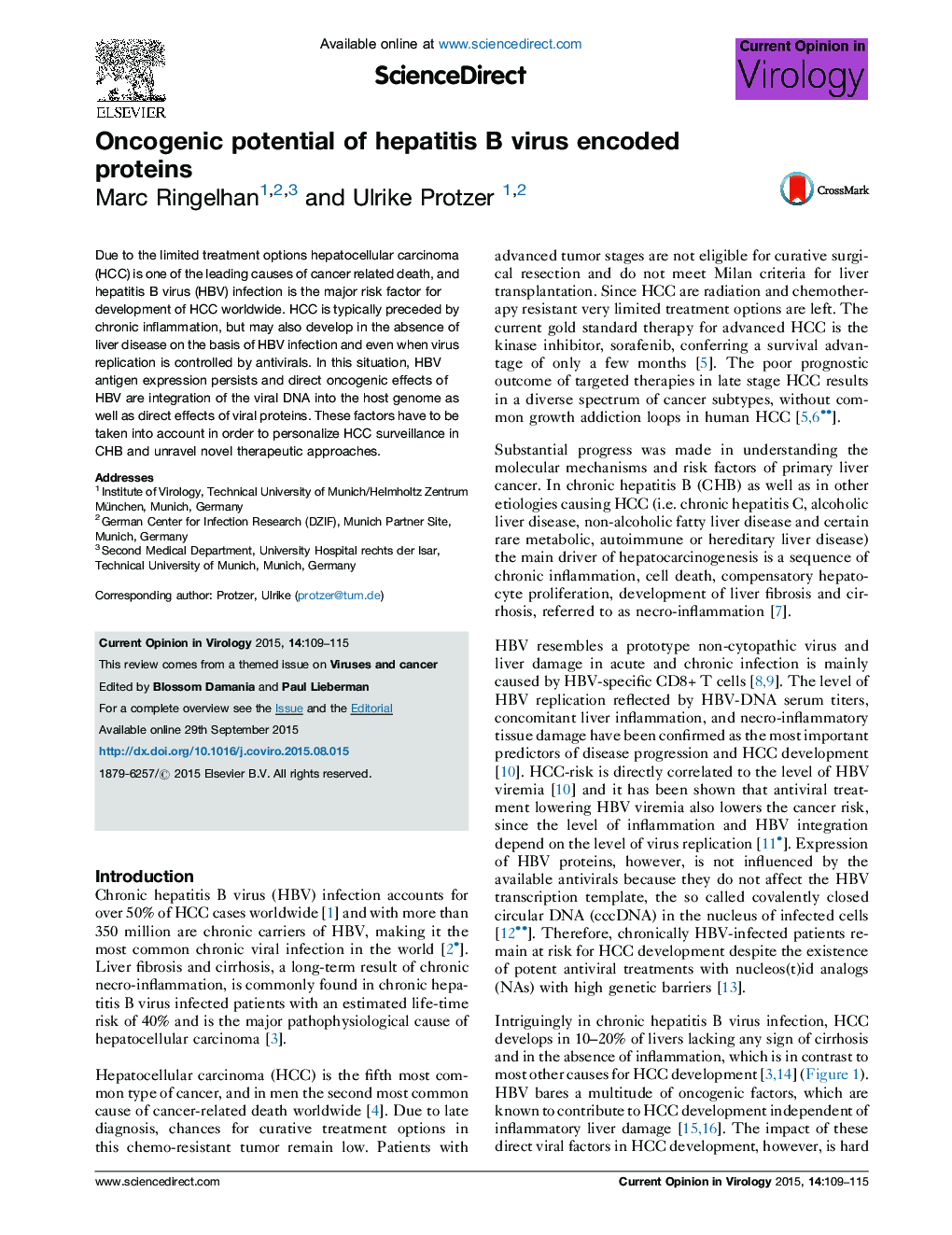| Article ID | Journal | Published Year | Pages | File Type |
|---|---|---|---|---|
| 2473255 | Current Opinion in Virology | 2015 | 7 Pages |
•Chronic HBV infection is the most common chronic viral infection in the world.•Chronic HBV carriers (CHB) are at high risk for liver cirrhosis and HCC.•Despite treatment with nucleos(t)id analogs patients are still at risk for HCC.•Chronic inflammation and direct carcinogenic effects of HBV contribute to HCC.•For HBV integration, HBsAg and HBx a plethora of oncogenic effects are proposed.
Due to the limited treatment options hepatocellular carcinoma (HCC) is one of the leading causes of cancer related death, and hepatitis B virus (HBV) infection is the major risk factor for development of HCC worldwide. HCC is typically preceded by chronic inflammation, but may also develop in the absence of liver disease on the basis of HBV infection and even when virus replication is controlled by antivirals. In this situation, HBV antigen expression persists and direct oncogenic effects of HBV are integration of the viral DNA into the host genome as well as direct effects of viral proteins. These factors have to be taken into account in order to personalize HCC surveillance in CHB and unravel novel therapeutic approaches.
